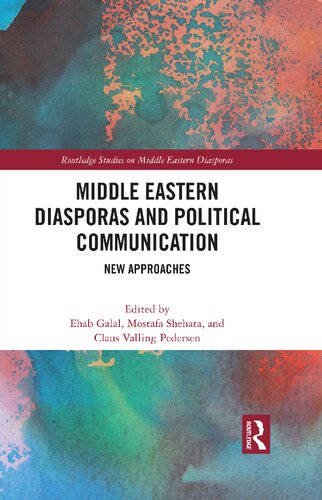

Most ebook files are in PDF format, so you can easily read them using various software such as Foxit Reader or directly on the Google Chrome browser.
Some ebook files are released by publishers in other formats such as .awz, .mobi, .epub, .fb2, etc. You may need to install specific software to read these formats on mobile/PC, such as Calibre.
Please read the tutorial at this link: https://ebookbell.com/faq
We offer FREE conversion to the popular formats you request; however, this may take some time. Therefore, right after payment, please email us, and we will try to provide the service as quickly as possible.
For some exceptional file formats or broken links (if any), please refrain from opening any disputes. Instead, email us first, and we will try to assist within a maximum of 6 hours.
EbookBell Team

4.1
50 reviewsThis edited book explores the development and reconfiguration of Middle Eastern diasporic communities in the West in the context of increased political turmoil, civil war, new authoritarianism, and severe constraints on media in the Middle East.
Taking an interdisciplinary approach, incorporating political and intercultural communication, the contributors investigate the rationale for diasporic politics, as well as the role of the transnational media in shaping diasporic political mobilization. This analysis of the media, situated within specific case studies, encompassing Afghani, Armenian, Bahraini, Egyptian, Lebanese, Syrian, Tunisian, and Turkish diasporic communities, reveals the variegated ways it influences diasporic politics and facilitates political action, as well as its influence on democratic actors residing in the Middle East. These new insights into Middle Eastern diasporas, political communication, and political mobilization are based on developments in the Middle East since 2011, and ultimately highlight how diaspora groups in the West relate to the situation in the Middle East, particularly in their countries of origin.
The book is important reading for students and researchers working in political/intercultural communication and diasporic politics, as well as those with a general interest in the Middle East.